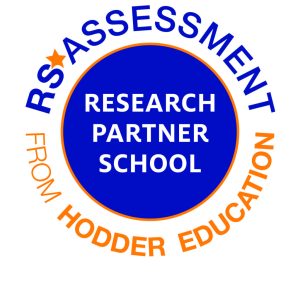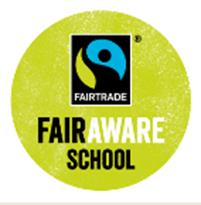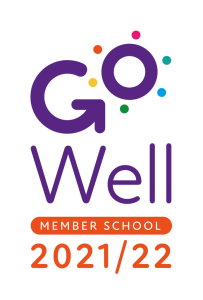We adapt the curriculum and learning environment for pupils with SEN:
Support for children with physical and sensory needs:
- Quality First Teaching, accessing a broad and balanced curriculum where barriers to inclusion are removed.
- Regular fine motor activities take place in the EYFS.
- Specialist group support from outside agencies e.g. Occupational Therapy, EWEL Team, Sensory Worx, Physiotherapy and specialist nursing staff from NHS.
- Adult facilitated movement or sensory breaks / sensory diet at regular points during lesson time. Children can access the Nurture Room where there are sensory activities/toys available.
- Adult facilitated programme to develop fine motor skills, which is regularly monitored to ensure pupil progress.
- Adult facilitated programme to develop gross motor skills, core strength and/or mobility skills under the advice of specialist (Sensory Worx).
- Additional support to safely access the environment, curriculum and off-site visits including swimming.
- Adult support to facilitate participation in lessons; to encourage and develop pupils attending and listening skills as well as contributions to the class.
- Adult to support any social and emotional interventions linked to pupil’s sensory needs to promote good self-esteem and personal understanding of their needs.
- Adult support during school visits or activities such as swimming where information will need to be relayed individually to ensure understanding and safety for the pupil including during any emergency procedures.
- Increased personal care provision to facilitate self-care skills, such as eating, drinking, toileting and to support development of independence in these areas.
Support for children with speech, language and communication needs:
- Quality First Teaching, accessing a broad and balanced curriculum where barriers to inclusion are removed.
- Daily Speech and Language interventions following advice from SALT team.
- Use of visual aids to support children with speech, language and communication needs.
- Adult to implement intervention work on speech and language targets.
Support for children with communication and interaction needs:
- Frequent and ongoing direct teaching of specific speech and/or language under the advice of outside professionals e.g., SLT, Autism Team.
- Frequent opportunities planned to develop early interaction skills e.g., intensive interaction.
- Planned explicit teaching of early play skills, which may be linked to language development and/or social development, under the advice of a professional.
- Use of specialised ICT with appropriate software for communication supported by staff who have had additional relevant training.
- Personalisation of tasks and activities (e.g. layout and content of task and variation in resources used to consider communication needs and/or developmental stage.
- Highly supported opportunities for positive interaction with others. Daily lunchtime nurture club to develop turn-taking skills and build friendships with peers. Adult modelling to ensure children are supported throughout interactions.
- Adult supported structured interaction to practise skills within social contexts.
- Frequent adult commentary on what the pupils is doing in a preferred activity to develop simple language and improve attention and listening skills.
- Frequent adult facilitation of listening and attention in adult led tasks through the use of an enabling environment (e.g., different spaces, group sizes, visuals, and motivators).
- Frequent adult support to use visual aids/resources to enable pupils to communicate needs, wants and ideas.
- Frequent adult support to negotiate/compromise to enable the pupil to communicate in a safe and assertive manner.
- Interventions in small groups, pairs or 1:1 on programmes recommended by professionals.
Support for children with social, emotional and mental health difficulties:
- Quality First Teaching, accessing a broad and balanced curriculum where barriers to inclusion are removed.
- Weekly sessions available in school from the school counsellor.
- Staff trained in delivery of the ‘Getting Along’ programme to support social development.
- Specialist group support from outside agencies e.g. CAMHS Mentoring, EWEL team and Counselling Service.
- School operates a ‘Buddy’ system for learning and social activities. Younger children supported by older children.
- The Nurture Room is used effectively to support children that need additional emotional and social support.
- Individualised evidence-based social and emotional programmes facilitated by staff who have had additional relevant training.
- Adult facilitation of proactive and carefully planned adaptations to the daily routine and environment to reduce demands.
- Key adult available to help negotiate/navigate tasks and activities.
- Adult focused work on promoting self-esteem and confidence.
- Use of a structured framework/approach around conflict resolution which focusses on repairing and restoring relationships e.g., restorative approaches.
- Adult focused support around inclusion and engagement e.g., scaffold support around social interactions including unstructured times.
- Adult facilitated support so that key social and emotional skills are consolidated and generalised e.g., using social stories to aid understanding of a range of situations.
- Key adult to monitor, plan and facilitate early intervention strategies and support via co-regulation and recovery e.g., distraction, reframing, sensory breaks.
- Individualised Nurture approach with check-ins planned into the daily routine.
- Frequent activities and interventions with peers are carried out in a very small group with adult modelling, sensitive scaffolding with a focus on developing social skills.
- Frequent adult support across the day to enable the pupil to tolerate others in their space.
- Two members of staff are trained ELSAs who attend supervision sessions with an educational psychologist.
Support for children with cognition and learning needs:
- Quality First Teaching, accessing a broad and balanced curriculum where barriers to inclusion are removed. Work differentiated and matched to the needs of the children.
- Maths and English specific interventions to support children with cognition and learning needs (Lexia, Freckle Maths).
- Specialist group support from outside agencies e.g. Educational Psychology Service • Differentiated materials.
- Teaching assistants are available to support children. Children can also access our Nurture Room/Thrive Room for support with learning in smaller groups.
- The Nurture Room allows children to learn in a way that best suits their needs, e.g. in a practical and physical way or in a space which is quieter than the classroom.
- Adult provides specific support and check ins for a higher proportion of lessons to increase/maintain attention and concentration skills, time on task, understanding of instructions and tasks and independent learning skills.
- Adult to facilitate regular pre/post tutoring for specific areas of learning which is regularly monitored and reviewed to ensure appropriate pupil progress (e.g., topic/specialist language).
- Adult supported access to a personalised workstation/quieter area.
- Adult support which emphasises direct teaching, alternative teaching approach and support to generalise skills for a high proportion or parts of every lesson (e.g., alternative to phonics, thinking maps, structured multi-sensory techniques).
- Adult to provide support to implement learning at a different pace and/or stage e.g. Precision Teaching.
- Adult to provide and facilitate extended play experiences (e.g., imagination, concepts and problem solving).
Staff undergo regular training throughout the year and this is systematically fed back to staff and practitioners through weekly staff meetings. All teaching and support staff are given opportunities to improve their practice and develop their understanding of SEN issues through a comprehensive system of staff training. Staff training is driven by the particular needs of our children and this helps us to meet them as fully as possible. Some training is carried out within school during staff meetings and Professional Development Days and other training is external. The school also accesses training provided by the Community of Learning. The school’s SENCO regularly attends the Local Authority’s SENCO Network Meeting to keep up to date with local and national updates in SEND. More details on how we adapt information, our environment and curriculum can be found in the Accessibility Plan which you can find in the School Policies section of our website.
More details on how we adapt information, our environment and curriculum can be found in the Accessibility Plan which you ca find in the School Policies section of our website.











